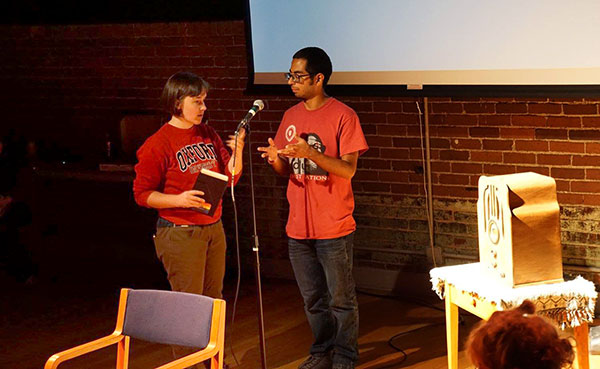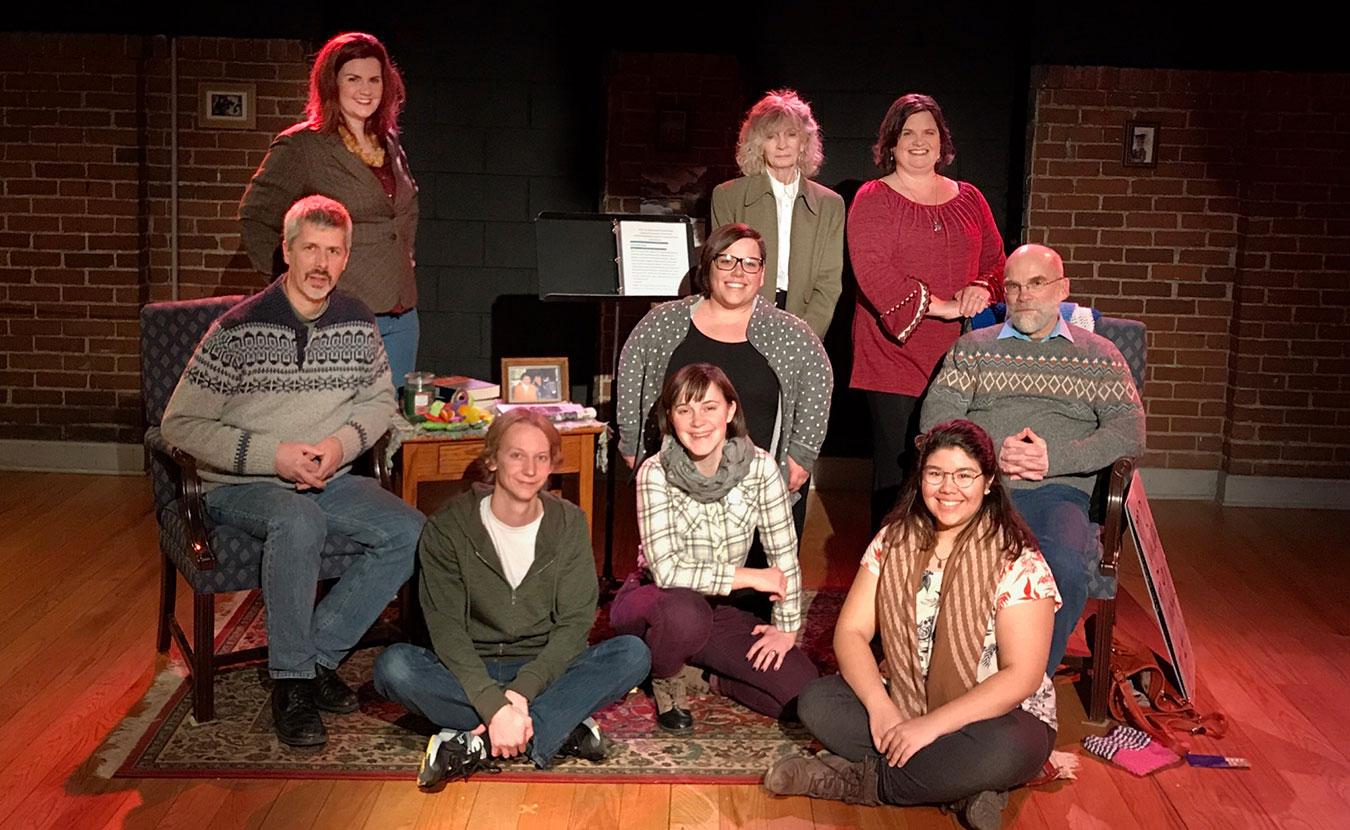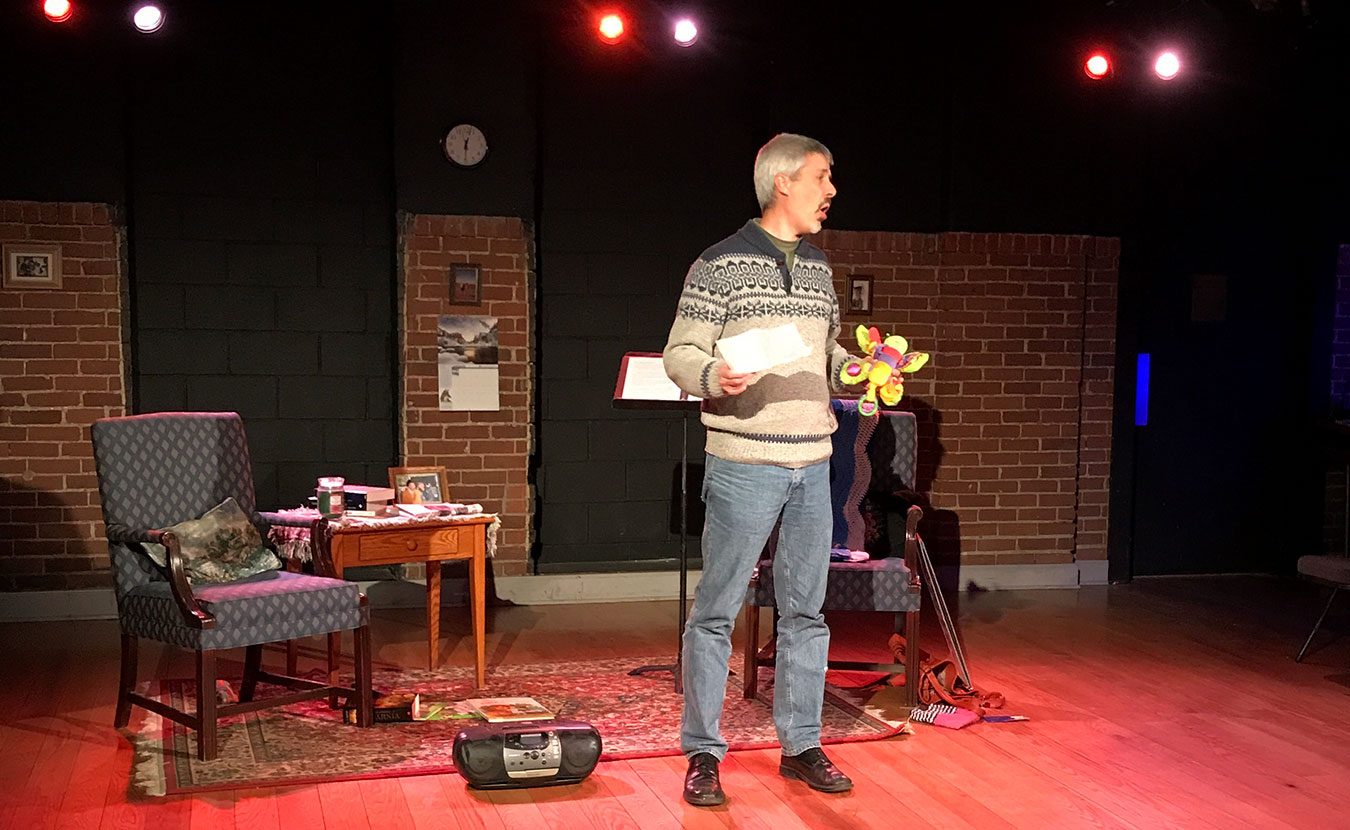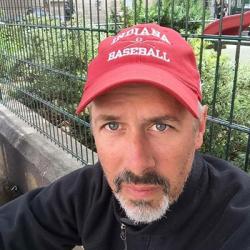[Editor’s note: Reverend Forrest Gilmore wrote this article about his participation in the event Ivy Tech Storytelling Series: On Reproductive Rights. Held in January, it was the second installment of the live true-storytelling series (the first was Immigrants, Refugees, and Asylum Seekers), which is produced by Aubrey Seader and Paul Daily, artistic director of the Ivy Tech John Waldron Arts Center, and is modeled on The Moth podcast. The next event, focused on race, will be on Friday, March 23, at 7 p.m. Each event in the storytelling series, Seader says, “picks a topic of importance to our local community, usually a topic that is also making national news. We like to pick topics that generally cause division between people in our community, and we choose stories from both sides of the divide. We feel that listening to a person’s personal story, and seeing how an issue has touched their lives, helps us see the issue in a different way and loosens our grip on our particular point of view. It also helps us feel less alone in the struggles we face.”]
By Forrest Gilmore
It was supposed to be a secret.
She swore me not to tell.
But secrets have a way of burning a hole in your heart.
This was my story, too. Could I tell the part that was mine to tell?
Could I share this story that refused to go silent while keeping her part safe and sound?
Those were the thoughts I had before walking up to the podium at a city council meeting.
The council was discussing a resolution of support for Planned Parenthood.
The room was tense, packed with supporters and dissenters.
One by one, people spoke their stories about reproductive rights, their health, access to birth control, and, of course, abortion.

Co-producer Aubrey Seader, left, chats with storyteller Willy Palomo during a tech rehearsal of the first event of the series, Immigrants, Refugees, and Asylum Seekers. | Courtesy photo
I had a story to share, too. As both a minister and a progressive, I’m not sure anyone knew what I would say. So, I spoke.
Years ago, I was involved with a woman and we became pregnant. My partner and I struggled with what to do. I was excited and very much wanted to have that potential child, but my partner was unsure. After much conversation and some argument, she made the decision to have an abortion.
That decision was hers and it’s not for me to share her reasons.
But, I was heartbroken.
I remember the day I drove her to the clinic. I felt numb all over. My body was heavy, like I was wading underwater. Every movement felt an urge of refusal.
I had to leave during the process and somehow found myself in a nearby Babies’R’Us.
I wandered through the store — through the beautiful wooden cribs, the onesies, the board books, and the stuffed animals. I saw a stuffed butterfly there … a butterfly I still carry with me today … as a reminder … a placeholder for love.
I grieved heavily for the loss of that baby-that-was-not-to-be. For months, I wrestled my way through life.
In time, the pain lessened and the grief quieted. But even today, I still feel that loss.
And I still grapple with that choice.
There’s a part of me that so wants to be against abortion. To say, no, No, NO!!
But there’s another part of me that just can’t.
I don’t think I could ever have said to my former partner, “You must. You will. You have to.”
I can’t.
I won’t.
Abortion is so difficult because it is so horribly complicated … everyone has some truth … often conflicting truths that like broken puzzle pieces don’t fit together no matter how hard we try.
And yet, abortion forces us to hold on to all those truths at the same time … to listen, to share, to open ourselves, to hold in our hearts the complexity, the paradox.
For me, it’s a story I have to hold … because I lived it.
I declare my support for the right of women to choose to be a mother … or not. And I step away from the podium.

The cast and crew of the On Reproductive Rights show, the second installment of the Ivy Tech Storytelling Series. Back row (standing): Emily Solt McGee, Kate Braun, and Shannon O’Connor Starks. Front, clockwise from left: Forrest Gilmore, Tabitha Burton, Steve Scott, Kaila Day, Aubrey Seader, and Joel Watson. | Courtesy photo
Years pass and Aubrey Seader, the director and co-producer of the Ivy Tech Storytelling Series, contacts me. She was at that city council meeting. She heard my story. She is creating a “Moth-like” event to have people tell their stories about reproductive rights, abortion, birth, and adoption. Would I share my story again?
I’m hesitant.
It’s painful to let old wounds surface. And how often do I want to tell this story? How many strangers do I want to know?
But the urge to share a story can have its sway.
Directed by Aubrey, the other storytellers and I rehearsed for nearly a month.
Finding our places. Getting the lights just right.
Tweaking the words. Memorizing our lines.
I was nervous. I was sharing the story without notes. Would I forget? Would I make my transitions? Would I miss something important?
The lights are bright, sharp. I know people are there, but I cannot see well.
And I begin. I tell the tale once again.
I can hear the quiet in the room.
The story has power. People are listening. They’re hearing the struggle, the conviction, the love. I sense softening hearts, empathy, a slight lean forward to capture whatever this is. We connect.
I finish. Silence.
That’s the power of story.
And that’s why we need to create the space for our stories to be shared … and heard.
Poet Muriel Rukyser tells us, “The universe is made of stories, not of atoms.”
We, humans, live on stories. They ground us. They connect us. They shape how we navigate the world.
From the bedside tales we were told as children to the Scriptures of our faith communities, from films, books, and plays to the local and global news, from family histories told by our grandparents to the sharing in the communities we create here and now, to remembrances of hardship, tragedy, and loss to celebrations of accomplishment, victory, and justice — stories help us make sense of our everyday lives, finding meaning as we live immersed in this awe-inspiring mystery of a universe.
We need more stories.
The next theme for the Ivy Tech Storytelling Series is On Race. What a perfect opportunity to expand our capacity for community.
The next installment of the Ivy Tech Storytelling Series is focused on race and will be at the Rose Firebay Theater in the Ivy Tech John Waldron Arts Center (122 S. Walnut St.) on March 23 at 7 p.m. Tickets are available at the Buskirk-Chumley Theater box office and website.


